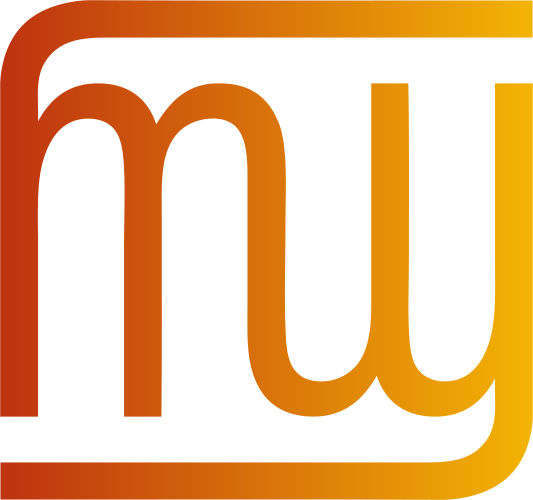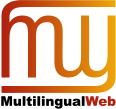
The W3C Internationalization (I18n) Activity works with W3C working groups and liaises with other organizations to make it possible to use Web technologies with different languages, scripts, and cultures. From this page you can find articles and other resources about Web internationalization, and information about the groups that make up the Activity. Read also about opportunities to participate and fund work via the new Sponsorship Program.
What the W3C Internationalization Activity does
Selected quick links
Selected quick links
Selected quick links
New tests: Line breaks in CSS3 Text
Several sets of tests are now available related to line breaks, word breaks and hyphenation in CSS3 Text and Unicode Standard Annex #14 (Line Breaking Properties). Some of the tests are rewrites of previous tests in the Internationalization Activity test suite. There are also many new tests.
See the main i18n test page for list of tests and results for major browsers. The tests are also published in the i18n-css3-text test suite in the W3C Test Harness.
New tests: White space in CSS3
The previous set of tests in the Internationalization Activity test suite looking at white space handling for various non-Latin scripts has been rewritten and published today. The new tests are based on behavior described in the CSS3 Text Module. These tests explore, in particular, how browsers render text in Asian and South-East Asian scripts when white space appears at the end or beginning of a line in the source text.
A list of tests and a snapshot of results for major browsers is available. The tests are also published in the i18n-css3-text test suite in the W3C Test Harness.
The results page is the latest to be adapted so that the results shown are automatically pulled from the W3C Test Harness database when the page is displayed. This functionality has now been extended to all test results pages using the new format.
New translation into German
Anwendung des Elements select an lokalen Inhalten (Using select to Link to Localized Content)
This article was translated into German thanks to Kamila Ścisłowicz (Tłumaczenia niemiecki).
New translation into Swedish
Språk på webben (Language on the Web)
This article was translated into Swedish thanks to Olle Olsson.
Speaking Proposals for FEISGILLT event open until August 14, don’t delay!
The deadline for submissions to speak at the FEISGILLT event has been extended to 14 August.
In various tracks, this event brings the communities involved in ITS 2.0 and XLIFF 2.0 closer together. Experts from the language services industry, from language technology, and from the Web community at large will discuss the role of these upcoming standards and help to shape their interplay. The ITS 2.0 track is supported by the W3C MultilingualWeb-LT Working Group and by the MultilingualWeb community at large.
If you want to speak at the event, submit a proposal as soon as possible.
This event will be held in Seattle, USA, as part of the Localization World Conference. In order to participate, you must register. Participants in W3C working groups will receive a 20% discount for attending the FEISGILLT event. For more information, see the FEISGILLT Call for Participation.
New Working Draft of Internationalization Tag Set (ITS) 2.0
A new version of Internationalization Tag Set (ITS) 2.0 draft has just been published as a Working Draft.
ITS 2.0 responds to current and future needs to extend ITS 1.0, that is: provide metadata (ITS “data categories”) also for HTML5, use the data categories for RDF, and add new data categories relevant for localization and language technologies.
In addition to various clarifications and smaller changes, this second version of the document provides several new data categories discussed during the MultilingualWeb workshop in Dublin in June (e.g. Domain and Locale Filter).
Please take a look at the new version, and send any comments to public-multilingualweb-lt-comments@w3.org (subscribe at the archive main page). Use “ITS 2.0 WD Comment” at the beginning the subject line of your email, and add something descriptive after it.
Send any comments before the end of August. We are planning to publish a new working draft in late August, and a feature complete “last call” working draft in November.
Dublin MultilingualWeb workshop report now available

A report summarizing the MultilingualWeb workshop in Dublin is now available from the MultilingualWeb site. Alongside the summaries are links to slides, video recordings, and the IRC log, for each speaker and for the discussion sessions.
Entitled “The Multilingual Web – Linked Open Data and MultilingualWeb-LT Requirements”, the workshop focused on two specific topics: the intersection between Linked Open Data and Multilingual Technologies, and requirements of the W3C MultilingualWeb-LT Working Group.
In both areas, the workshop was a great success. First, it helped to connect leading experts in the areas of linked open data, language technologies, terminology and localization. And second, detailed discussion about MultilingualWeb-LT requirements provided a major input to the creation of the first public working draft of Internationalization Tag Set (ITS) 2.0.
This workshop was unlike previous workshops because its focus was specific to two topics, and the audience was intentionally restricted to experts in those areas. The MultilingualWeb-LT project plans to hold additional workshops next year that will have the broad scope and similar format to previous workshops.
Slides, Videos, and IRC logs available for Dublin MultilingualWeb workshop

The program page of the 5th MultilingualWeb Workshop in Dublin on Multilingual Linked Open Data and the MultilingualWeb-LT Requirements has now been updated with links to speakers’ slides, IRC logs, and video recordings (hosted by Videolectures). It also includes links to social media information (such as tweets) about the workshop. If you have any blog posts, photos, etc. online that you would like to add to the page, please let Arle Lommel (arle.lommel@dfki.de) know so that we can link to them from this page.
The workshop was a great success. While intentionally smaller than previous Multilingual Web workshops, it brought together many of the world’s leading experts in the emerging field of linked open data and multilingual linked open data. Thanks to the efforts of the excellent speakers and the local organizers at Trinity College Dublin, the program was of great benefit to attendees.
A summary report of the workshop will follow soon.
New translations into Russian and Ukrainian
Ukrainian:
Використання <select> для Посилання на Локалізований Контент (Using <select> to Link to Localized Content)
Запровадження Багатомовної Веб Адреси (An Introduction to Multilingual Web Addresses)
Налаштування відображення мови за допомогою Apache MultiViews (Apache MultiViews language negotiation set up)
Особисті імена в різних мовах світу (Personal names around the world)
Russian:
Использование <select> для Ссылания на Локализованный Контент (Using <select> to Link to Localized Content)
Введение Многоязычного Веб Адреса (An Introduction to Multilingual Web Addresses)
Настройка отображения языка с помощью Apache MultiViews (Apache MultiViews language negotiation set up)
Личные имена в разных языках мира (Personal names around the world)
These articles were translated thanks to Alexandr Shlapak.
First Public Working Draft published: Use Cases & Exploratory Approaches for Ruby Markup
Use Cases & Exploratory Approaches for Ruby Markup looks at a number of use cases involving simple and complex ruby, and considers which are supported by the current markup models in the HTML5 and XHTML Ruby Annotation specifications. Where a use case is not supported by the HTML5 model, it provides suggestions about how the markup model could be adapted to better support those use cases. In each case, pros and cons of the approach are listed, but the document does not attempt to impose a particular solution.
The hope is that implementers and standards developers will take the information and suggestions in this document as a starting point for developing a markup model for ruby in HTML5 that fully supports the use cases.
This first public working draft was published by the W3C Internationalization Core Working Group. The editor is Richard Ishida (W3C).
We welcome feedback. Please send comments to www-international@w3.org (publicly archived). Please use a relevant and informative subject line that begins with “[ruby] “.
W3C® liability, trademark and permissive license rules apply.
Questions or comments? ishida@w3.org